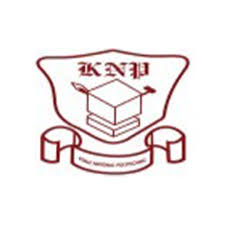- Teacher: Admin User
kipyegondoreen.gnomio.com
-
Welcome to your new Gnomio site
Now, you are in control!
Moodle is an open-source Learning Management System (LMS) that provides educators with the tools and features to create and manage online courses. It allows educators to organize course materials, create quizzes and assignments, host discussion forums, and track student progress. Moodle is highly flexible and can be customized to meet the specific needs of different institutions and learning environments.
Moodle supports both synchronous and asynchronous learning environments, enabling educators to host live webinars, video conferences, and chat sessions, as well as providing a variety of tools that support self-paced learning, including videos, interactive quizzes, and discussion forums. The platform also integrates with other tools and systems, such as Google Apps and plagiarism detection software, to provide a seamless learning experience.
Moodle is widely used in educational institutions, including universities, K-12 schools, and corporate training programs. It is well-suited to online and blended learning environments and distance education programs. Additionally, Moodle's accessibility features make it a popular choice for learners with disabilities, ensuring that courses are inclusive and accessible to all learners.
The Moodle community is an active group of users, developers, and educators who contribute to the platform's development and improvement. The community provides support, resources, and documentation for users, as well as a forum for sharing ideas and best practices. Moodle releases regular updates and improvements, ensuring that the platform remains up-to-date with the latest technologies and best practices.
Links of interest:
(You can edit or remove this text)
Available courses

Sociology of education is a foundation subject in teacher education. It defines the concept of sociology and its application to education. The course seeks to equip the learner with knowledge and attitudes that will enable them to appreciate the role of Sociology in education. The unit exposes the learners to study individuals' experiences and situations that influence education. This course also examines, social institutions and their influence on educational attainment and achievement.
This is an online course and all resources will be made available to you through our college Learning Management System which you shall be inducted into on its use. Exams will be done face to face in college on the date that you will be communicated to. You need a laptop or a smartphone for this class. You will be evaluated through individual CATS, group work, and end-of-term exams.
- Teacher: Admin User

Course Summary: Philosophy
Overview
Philosophy is the study of fundamental questions regarding existence, knowledge, values, reason, mind, and language. It encourages critical thinking, logical reasoning, and the exploration of abstract concepts.
Key Areas of Study
1. Metaphysics
- Definition: The study of the nature of reality and existence.
- Key Questions: What is there? What is it like?
- Topics: Being, existence, objects and their properties, space and time, causality.
2. Epistemology
- Definition: The study of knowledge and belief.
- Key Questions: What is knowledge? How do we know what we know?
- Topics: Sources of knowledge, skepticism, justification, truth.
3. Ethics
- Definition: The study of moral values and principles.
- Key Questions: What is right and wrong? What should we do?
- Topics: Utilitarianism, deontology, virtue ethics, moral relativism.
4. Logic
- Definition: The study of reasoning and argumentation.
- Key Questions: What constitutes a valid argument? How can we distinguish good reasoning from bad?
- Topics: Deductive and inductive reasoning, fallacies, formal logic.
5. Aesthetics
- Definition: The study of beauty and art.
- Key Questions: What is beauty? What is art?
- Topics: Artistic value, interpretation, emotional responses to art.
6. Political Philosophy
- Definition: The study of government, justice, rights, and the role of individuals in society.
- Key Questions: What is the best form of government? What rights do individuals have?
- Topics: Social contract theory, liberty, equality, justice.
Learning Outcomes
- Develop critical thinking and analytical skills.
- Understand key philosophical concepts and theories.
- Engage with philosophical texts and arguments.
- Formulate and articulate personal philosophical views.
Recommended Readings
- "Meditations" by Marcus Aurelius
- "Critique of Pure Reason" by Immanuel Kant
- "The Republic" by Plato
- "Nicomachean Ethics" by Aristotle
- Teacher: Admin User
